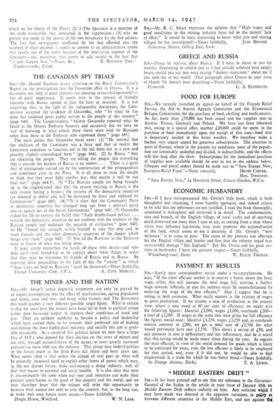PAYMENT BY RESULTS
SIR,—Surely your correspondent writes under a misapprehension. He says, "If the more efficient worker is to receive a bonus above the basic wage, either this will increase the total wage bill, proving a further stage towards inflation, or else his increase must be counterbalanced by reducing the wage of the -less efficient." May I suggest that he is wrong in both estimates. What really matters is the relation of wages to gross production. If we assumea case of production at the present time, where it may stand at 80 per cent, of efficiency, we might give the -following figures: Material £1,000, wages £1,000, overheads £200- a total of £2,200. If wages at the same rate were given for full efficiency the figures would read: Material £1,250, wages £1,250 and, as overheads remain constant at £200, we get a total cost of £2,700 for what would previously have cost' £2,750. This shows a saving of £50, and any decrease in cost is deflationary and not inflationary, and be it noted that this saving would be made many times during the year. As regards the least efficient, in view of the world demand for goods which is likely to be continued for years, even the less efficient is likely to be employed for that period, and, even if it did not, he would be able to find employment in a trade for which he was better fitted.—Yours


































 Previous page
Previous page